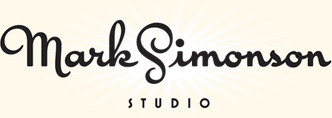Type selection is key
Typography sets the tone before you say a word. It shapes how your message comes across — how it feels, how it’s read, and how it’s remembered.
We notice type most when it’s wrong. When something feels off. The spacing’s tight, the voice is too loud, or it just doesn’t match what’s being said. But when the type is right, it gets out of the way — and helps the words do their job. It can give structure to ideas. It makes space for meaning. Typography isn’t just about style. It’s about the way we take in information. It adds rhythm to the reading experience. It tells us where to look first and what matters most. It makes content easier to follow, and in some cases, easier to trust. The tone comes through in the details — the shape of the letters, how they’re spaced, the way one form leads to the next. Some typefaces feel quiet and careful. Others have energy. Some pull you in. Some stay out of the way. Choosing the right one is less about picking a look and more about finding a voice that fits what you want to say.That’s why trying type in context matters. It’s one thing to see a beautiful letter or a well-set specimen — but it’s another thing to see how it handles your content. How it behaves when it’s small. How it reads when it’s big. How it feels with your own words.That’s what this space is for. Try a headline. Paste a paragraph. Adjust the size, change the weight, type something unexpected. Some typefaces are built to be expressive. Others are made to stay flexible. The best ones hold up in all kinds of situations. They do the job without losing their character. Take a minute to experiment. You’ll know when it feels right.
About Lakeside Regular
Lakeside Regular is a part of the Lakeside font family. It includes OpenType features such as common ligatures, fractions, and several more. Lakeside Regular is ideal for newspaper usage.
Lakeside (2008) is a flowing 1940s-style brush script, inspired by hand-lettered titles in Otto Preminger’s classic 1944 film noir movie “Laura.” Lakeside uses OpenType magic to automatically mimic real Script lettering, choosing the best letter shapes based on where they fall in a word and what letters are nearby. It also includes three sizes of capitals: Normal capitals for typical settings, tall capitals for a more elegant effect, plus a small, plain set of capitals for setting in all caps, something not usually possible with script faces.
Language Support
Language Support
- Catalan
- Croatian
- Czech
- Danish
- Dutch
- English
- Filipino
- Finnish
- French
- Fula
- German
- Hungarian
- Indonesian
- Italian
- Latvian
- Malay
- Maltese
- Norwegian
- Polish
- Portuguese
- Romanian
- Slovak
- Slovenian
- Spanish
- Swedish
- Turkish
Features
OpenType Features
- Common Ligatures
- Fractions
- Ordinal Numerals
- Small Capitals
- Stylistic Alternates
- Stylistic Sets
- Superscript
- Titling Capitals
Lakeside Character Set
latin capital letter a U+0041
A
